
David Sims
@TheSimsLab
Marine ecologist, university professor #ERCAdG researching #Shark movements, behaviour & conservation w/ #biologging #GlobalSharkMovementProject - views my own.
ID:3401747363
https://www.globalsharkmovement.org/ 03-08-2015 20:16:06
1,7K Tweets
3,7K Followers
743 Following

Boris Worm David Sims Spotlight article here: sciencedirect.com/science/articl…
Original study: science.org/doi/10.1126/sc…
📷 in thread courtesy Madison Stewart (Project Hiu). Mako 📷 courtesy CIBIO / MBA
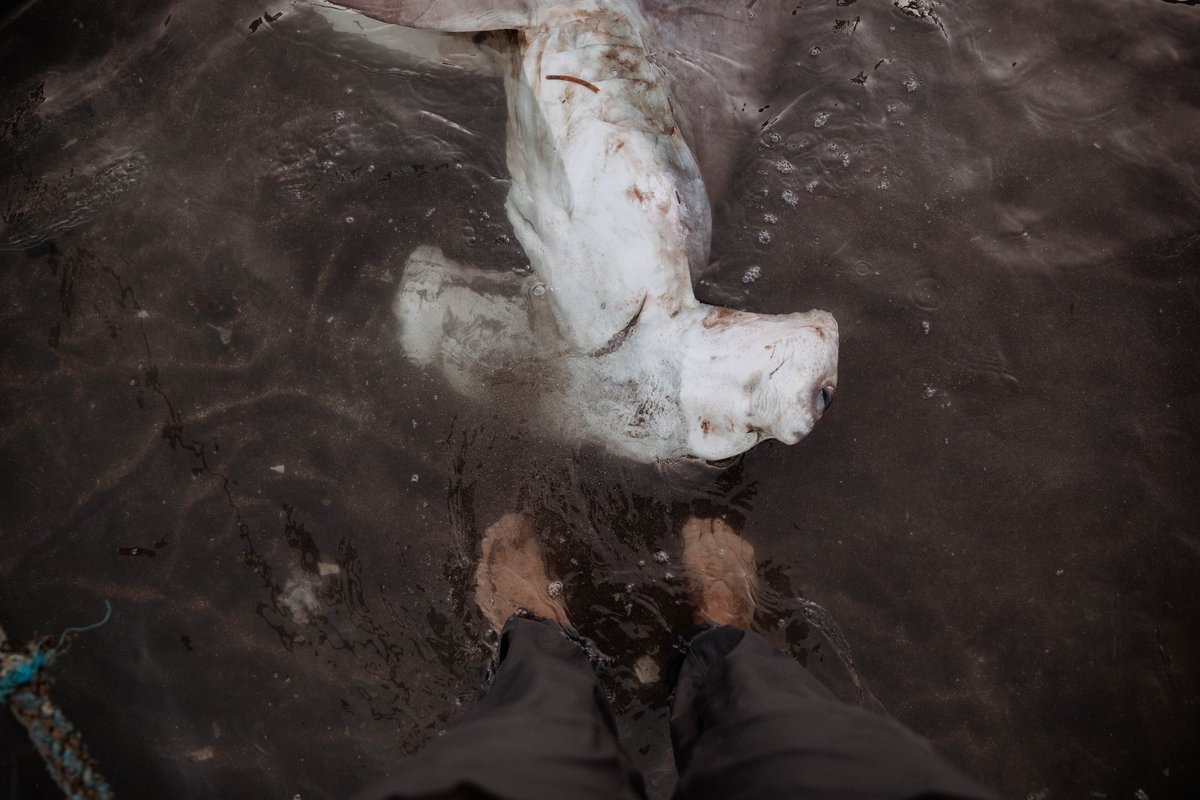

Boris Worm David Sims David Sims & I discuss the importance of this study & highlight its findings. It’s clear that rather than focusing on finning alone, the next wave of shark conservation will require reducing overall shark mortality amid threats from global change, including global warming.


Boris Worm David Sims While discouraging, the study does report some positive outcomes: namely, regulations that appeared to successfully reduce shark mortality, such as regional shark fishing prohibitions or retention bans, that is, policies that directly reduce the number of sharks being killed.

Boris Worm While the demand for shark fins was historically the greatest threat to sharks, anti-finning regulations did not prevent sharks from being killed, nor did it even prevent fins from being removed and sold, so long as the rest of the shark was not discarded at sea.
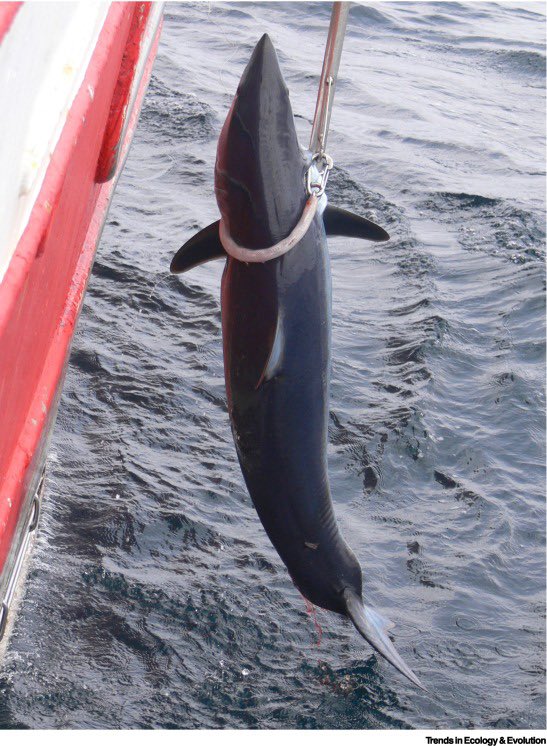

Despite anti-finning laws aimed at conserving sharks, a recent study by Boris Worm & colleagues have revealed that global shark mortality rates have surprisingly risen over the past decade, driven in large part by increased demand for shark meat. This is a huge wake-up call.
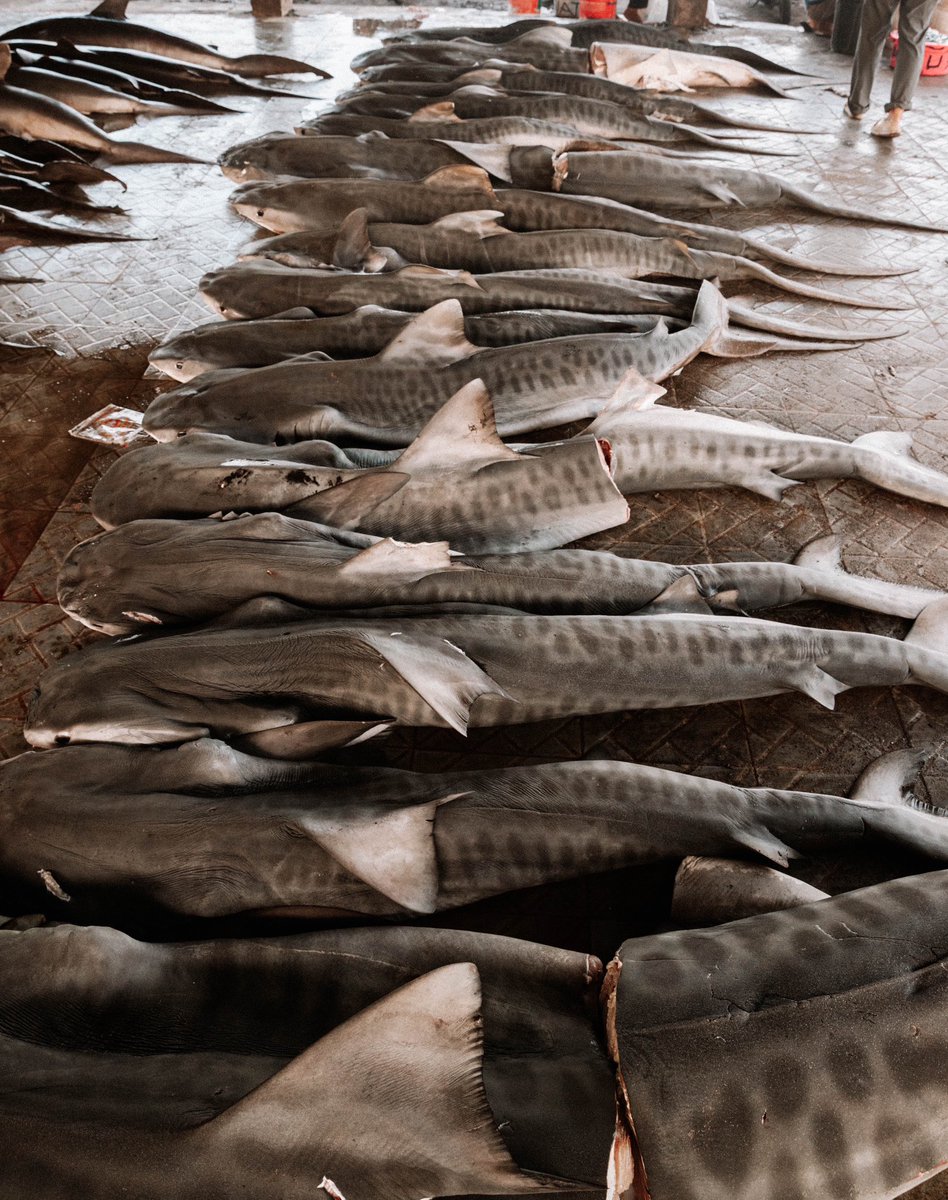

New spotlight article in Trends in Ecology & Evolution “Shark conservation requires mortality-limiting regulations amid global change” sciencedirect.com/science/articl…


Why do some animals dive to the dark, deep sea? 🐟🦈🐙🌊
David Sims David Sims from the MBA - Marine Biological Association is part of a study which found that large predatory fishes dive between 200m to 1,000m below the surface.
Want to find out why? 👇
#EUfunded scienmag.com/new-study-shed…

New immigration rules are a threat to UK science: letter from me & Alex Lees. Additional increase in 2024 in the fee for Global Talent Visas to £5931 (!)(according to The Royal Society note) will be a further barrier to mobility
nature.com/articles/d4158…
royalsociety.org/-/media/policy…
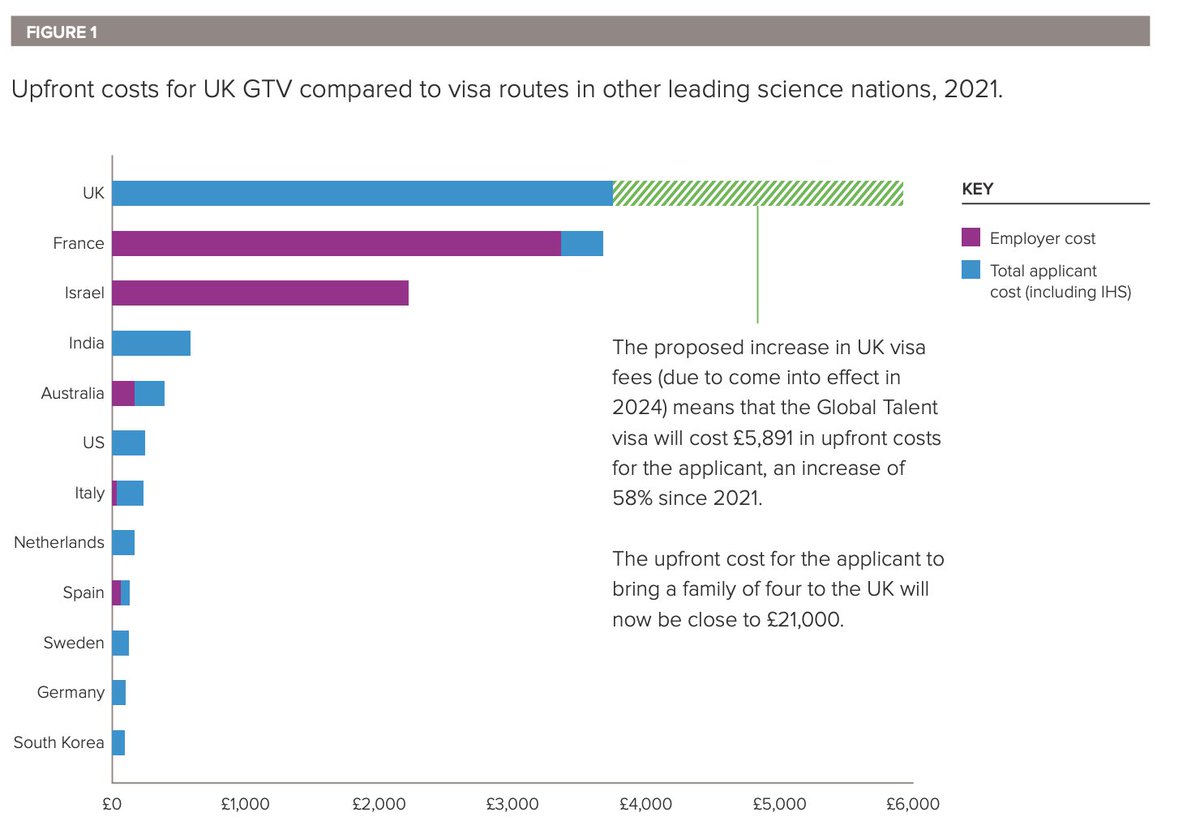

🚨🚨Our paper on industrial activity at sea, mapped from space, is out today in @nature! 🚨🚨
nature.com/articles/s4158…
This is the foundation of the Open Ocean Project - Global Fishing Watch's effort to map all human activity at sea: globalfishingwatch.org/open-ocean-pro…



New #OA paper: #COVID__19 effects on global shipping activity much more complicated than previously reported - great new paper by Alexandra Loveridge & Intl Bio-Logging Soc Covid-19 Initiative UN Ocean Decade National Geographic Moore Foundation


What was the impact of Covid-19 restrictions on maritime traffic? 🚢
Using global datasets, our David Sims researchers have revealed a surprising complexity of maritime activity during 2020.
Find out more: buff.ly/47UBNlk
#Shipping #Covid19 #MaritimeTraffic
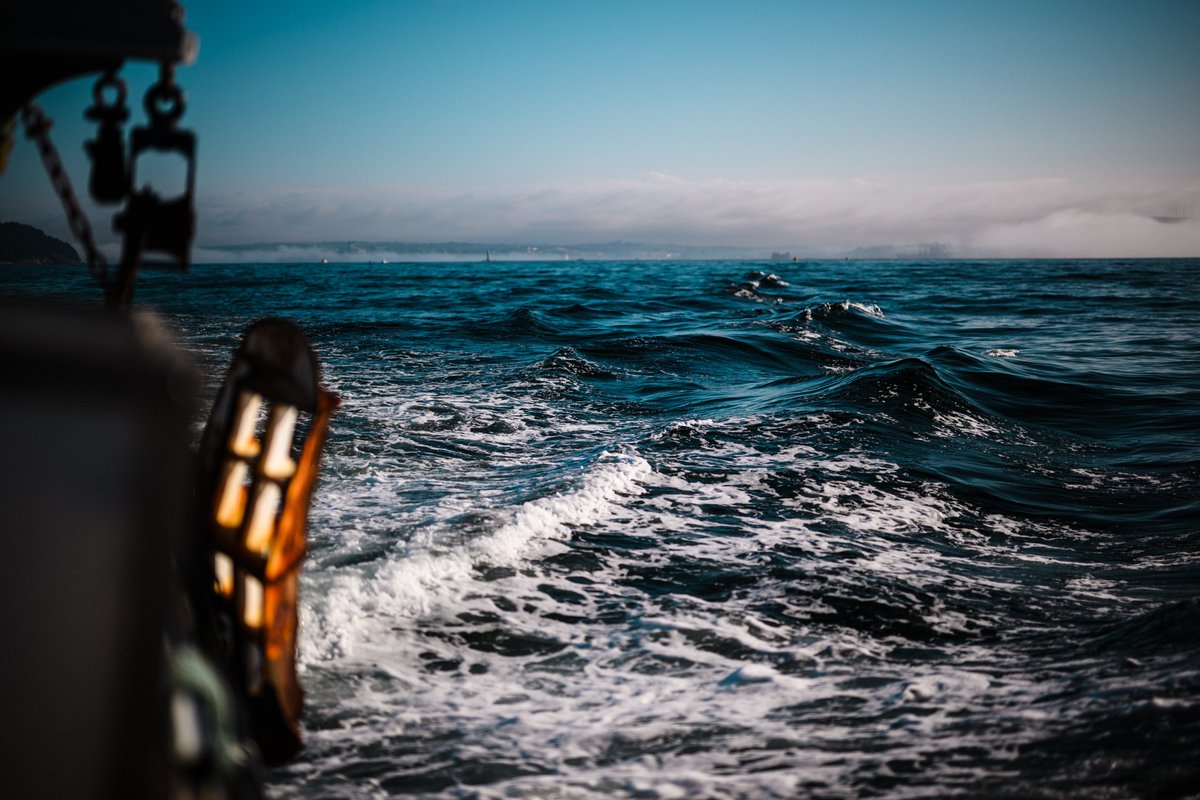

New EU project aims to reduce bycatch in fishing, Professor David Sims David Sims and his research team at the MBA are contributing to the pelagic shark work package.
Read more here ➡️
buff.ly/3uUFokZ

I'm in an IML Southampton Southampton Marine and Maritime Institute sustainable shipping event, so I chose 3 x shipping #paperoftheweek for #fridayfryup :
-------------------
002
doi.org/10.1016/j.gloe…
and
nature.com/articles/d4158…
by Alexandra Loveridge David Sims
science.org/doi/10.1126/sc…
by Dr Charlotte Findlay

And of course there's Freya Womersley David Sims's excellent paper on whale shark collision-risk hotspots:
pnas.org/doi/full/10.10…

New DTP PhD Opportunity to research effects of Climate Change on Pelagic #Shark movements, habitats & distribns - come join the team MBA - Marine Biological Association OceanEarthUniSoton inspire-dtp.ac.uk w/ Ryan Reisinger Freya Womersley Nuno Queiroz
Apply here: noc.ac.uk/gsnocs/project…
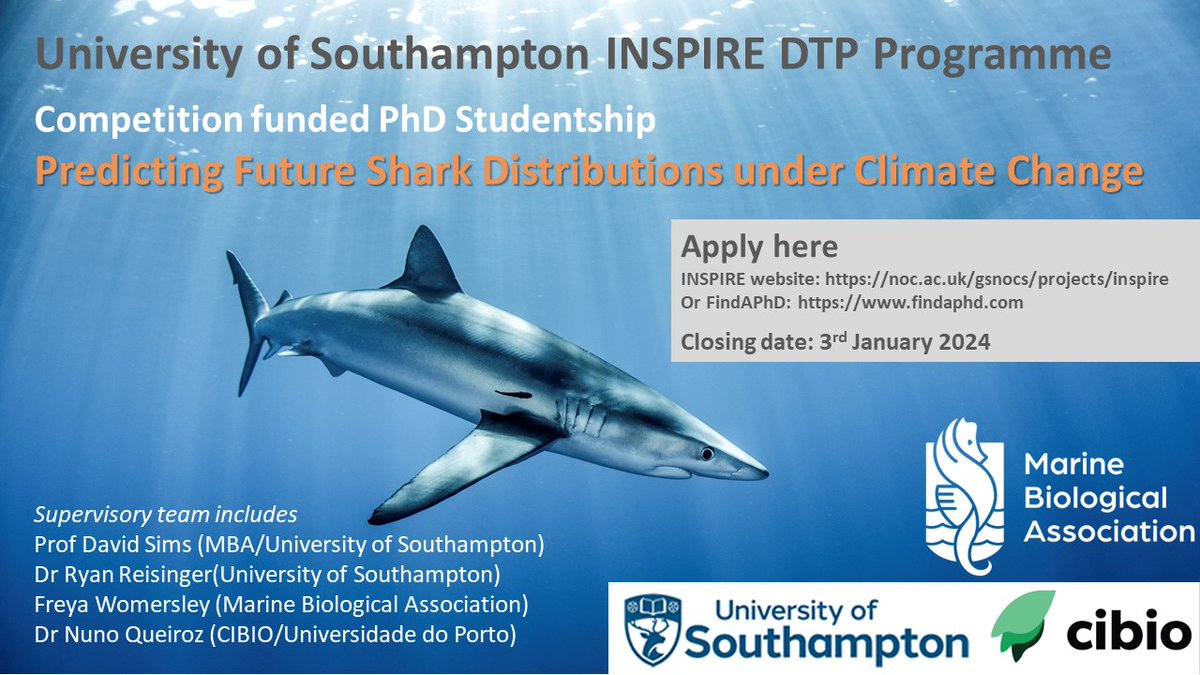



We were delighted to welcome scientists from Universidade do Porto to discuss recent shark tagging results with our David Sims team.
🦈 Find out more: buff.ly/3swR2S8
MOVE
Nuno Queiroz
European Research Council (ERC)
Association of ERC Grantees


